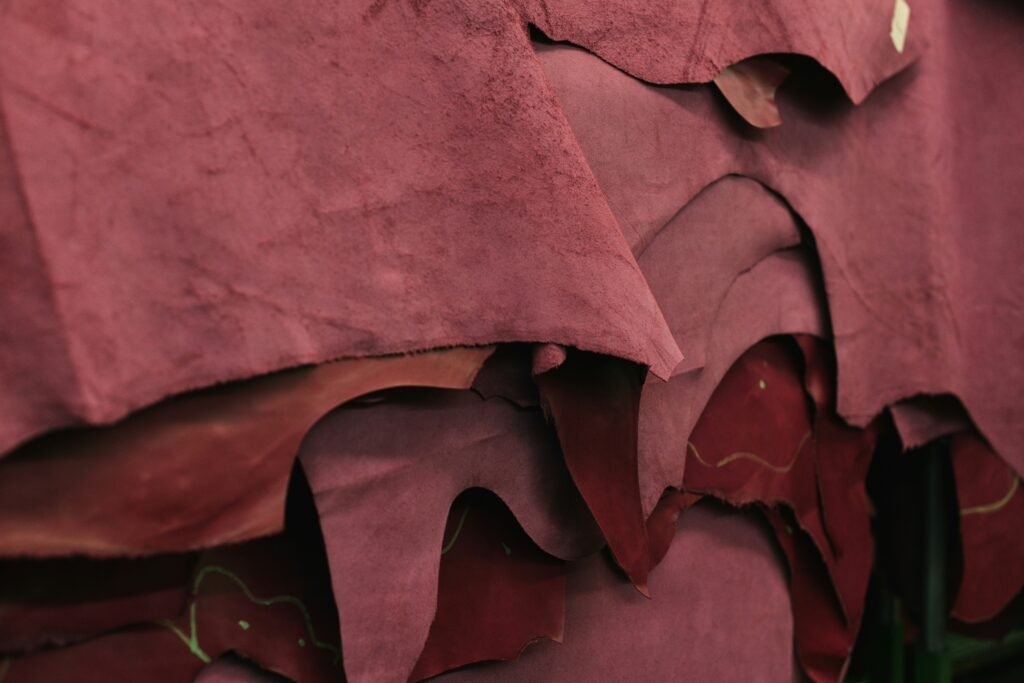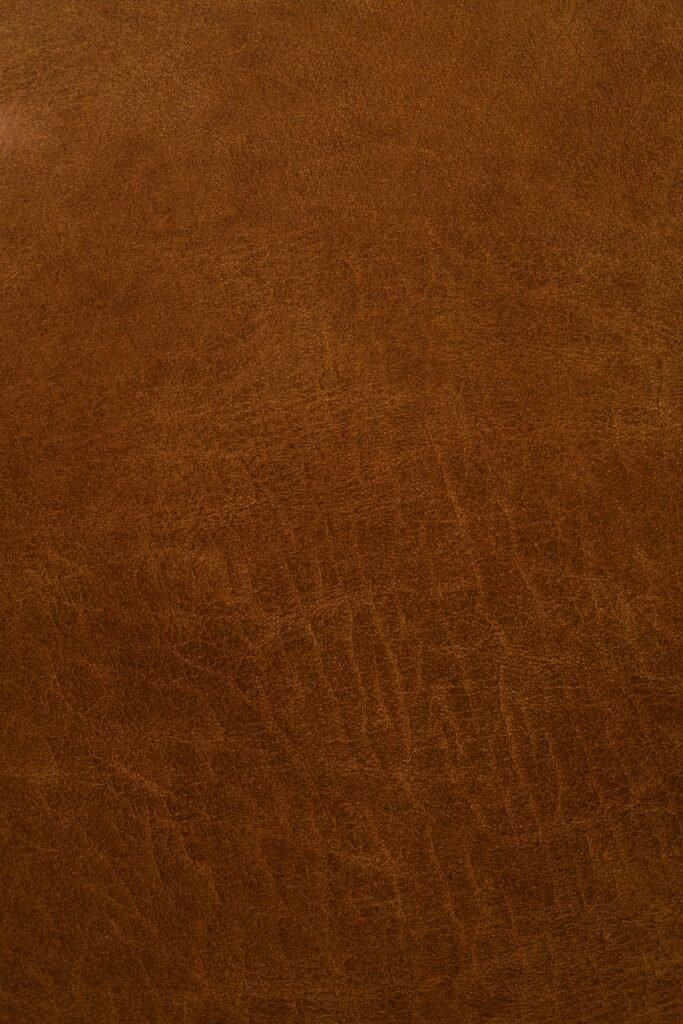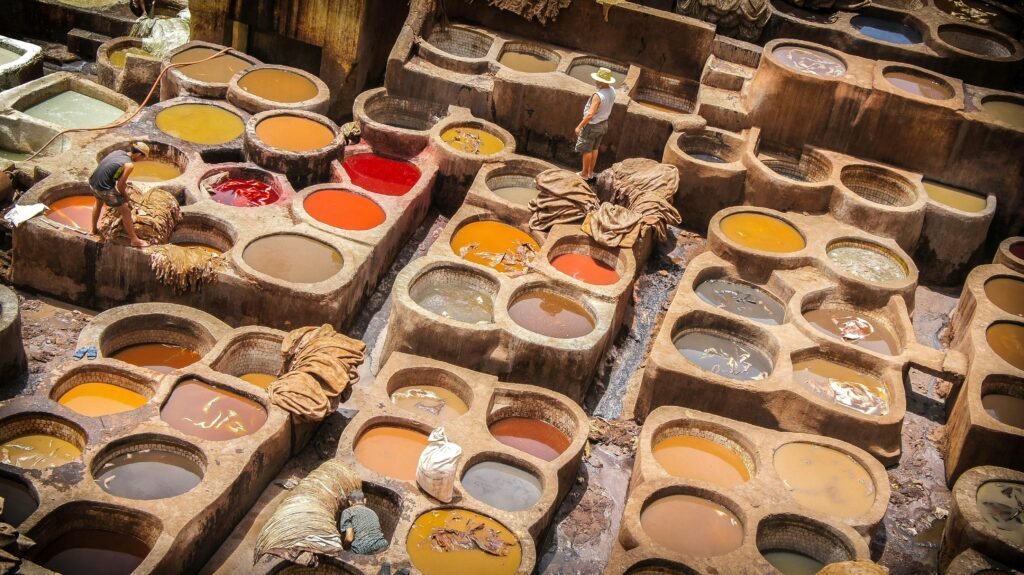Essential Tips for Maintaining Alligator Leather
Maintaining alligator leather can seem like a daunting task, but with a few essential tips, you can keep your luxurious accessories in tip-top shape. From wallets to handbags, alligator leather is not only durable but also exudes a timeless elegance. By using proper cleaning techniques, you can ensure that your prized possessions stay looking sleek and sophisticated for years to come. Let’s explore some key tips to help you maintain your alligator leather and keep it looking flawless.

This image is property of images.unsplash.com.
Regular Cleaning
Keeping your alligator leather items clean is an essential part of maintaining their beauty and durability. Regular cleaning not only removes dirt and grime but also helps prevent the build-up of oils and other substances that can damage the leather. To clean your alligator leather, follow these simple steps:
Use a soft, damp cloth
Start by using a soft, damp cloth to gently wipe the leather. Make sure the cloth is clean and free from any abrasive particles that could scratch the leather. You can dampen the cloth with water or a mild soap solution, depending on the level of dirtiness.
Gently wipe the leather
With the damp cloth, gently wipe the alligator leather in a circular motion. This helps to lift any dirt or residue that may be stuck to the surface. Avoid applying too much pressure, as this can cause damage to the leather.
Avoid excessive water
While it is important to use a damp cloth for cleaning, it is crucial to avoid excessive water. Alligator leather, like any other type of leather, is susceptible to water damage. Excessive water can cause the leather to shrink, become stiff, or even crack.
Dry the leather completely
After cleaning, make sure to dry the leather completely. Use a clean, dry cloth to gently remove any remaining moisture from the surface. Allow the leather to air dry at room temperature, away from direct heat sources. Avoid using a hairdryer or exposing the leather to sunlight as this can also cause damage.
Specialized Cleaning Products
In addition to regular cleaning, there may be times when your alligator leather requires specialized cleaning products. These products are specially formulated to ensure the safe and effective cleaning of alligator leather. Here’s how to use them properly:
Choose a leather cleaner specifically for alligator leather
When selecting a leather cleaner, make sure to choose one that is specifically formulated for alligator leather. These cleaners are designed to be gentle yet effective in removing dirt and stains without compromising the integrity of the leather.
Read and follow the instructions carefully
Before using any specialized cleaning product, it is important to read and follow the instructions carefully. Pay attention to the recommended usage and the appropriate amount to use. Following the instructions ensures that you are using the product correctly and maximizing its effectiveness.
Apply the cleaner with a clean cloth
Using a clean cloth, apply the specialized leather cleaner to the alligator leather. Make sure to apply the cleaner evenly and avoid over-saturating the leather. Gently rub the cleaner into the leather using a circular motion.
Gently rub the leather in a circular motion
After applying the cleaner, gently rub the leather in a circular motion. This action helps to lift dirt and stains from the surface of the leather. Take care not to scrub too vigorously, as this can damage the delicate scales of the alligator leather.
Wipe off any excess cleaner
Once you have finished cleaning, use a clean cloth to wipe off any excess cleaner. Make sure to remove all traces of the cleaner from the leather. Leaving any residue behind can lead to a dull or sticky appearance.
Avoid Harsh Chemicals
Alligator leather is a natural material that requires gentle care. Harsh chemicals, such as bleach or ammonia-based products, can cause irreparable damage to the leather. To protect your alligator leather, follow these guidelines:
Do not use bleach or ammonia-based products
Bleach and ammonia-based products are too harsh for alligator leather. These chemicals can strip away the natural oils and color of the leather, leaving it dull and prone to cracking. It is best to avoid using these products altogether.
Avoid using household cleaning solutions
While some household cleaning solutions may seem harmless, they can still damage alligator leather. Many of these solutions contain chemicals that are not suitable for use on delicate materials like leather. Instead, stick to specialized leather cleaners that are specifically designed for exotic skins.
These can damage the leather texture and color
Harsh chemicals can alter the texture and color of alligator leather. The scales may become discolored, lose their luster, or even peel off. Additionally, the chemical reactions can weaken the structure of the leather, making it more prone to tears and cracks.
Storing Alligator Leather
Proper storage is essential for maintaining the quality and longevity of your alligator leather items. Follow these guidelines to ensure that your alligator leather stays in pristine condition:
Keep the leather away from direct sunlight
Direct sunlight can cause the color of alligator leather to fade over time. To prevent this, store your alligator leather items in a location that is away from direct sunlight. If possible, cover them with a cloth or place them in a closet or storage box.
Avoid extreme temperatures
Alligator leather is sensitive to extreme temperatures. Avoid storing it in areas that are too hot or too cold, as this can cause the leather to crack or warp. Choose a storage location with stable temperature and humidity levels to protect your items.
Store in a clean and dry place
Moisture can damage alligator leather, so it is crucial to store it in a clean and dry place. Avoid areas with high humidity, such as basements or bathrooms, as these can cause mold or mildew growth. Instead, opt for a clean and well-ventilated space.
Avoid stacking or crushing the leather items
To prevent creases, folds, or other damage, avoid stacking or crushing your alligator leather items. If you need to store them in a box or a drawer, make sure to provide enough space and cushioning to maintain the original shape of the leather.

This image is property of images.unsplash.com.
Conditioning Alligator Leather
Conditioning is an important step in caring for alligator leather. It helps to keep the leather soft, supple, and moisturized. Follow these steps to condition your alligator leather properly:
Choose a specialized leather conditioner for exotic skins
When selecting a conditioner for your alligator leather, choose one that is specifically made for exotic skins. These specialized conditioners contain ingredients that nourish and protect alligator leather without causing any harm.
Read and follow the instructions on the product
Before applying the conditioner, carefully read and follow the instructions provided by the manufacturer. Each conditioner may have different application techniques and recommended drying times. Following the instructions ensures that you are getting the most out of your conditioner.
Apply the conditioner evenly on the leather surface
Using a clean cloth or sponge, apply the conditioner evenly on the entire surface of the alligator leather. Make sure to cover all the scales and crevices. Spread a thin and even layer, avoiding any excess buildup.
Allow the conditioner to penetrate the leather
After applying the conditioner, allow it to penetrate the leather for the recommended duration. This allows the conditioner to moisturize and nourish the leather, keeping it soft and flexible. The absorption time may vary depending on the specific conditioner, so refer to the instructions provided.
Buff the leather gently with a soft cloth
Once the conditioning process is complete, gently buff the leather with a soft cloth. This helps to remove any excess conditioner and brings out the natural shine of the alligator leather. Use gentle, circular motions to achieve the best results.
Avoid Excessive Moisture
To maintain the quality and appearance of your alligator leather items, it is crucial to avoid excessive moisture. Follow these guidelines to protect your alligator leather from water damage:
Keep alligator leather away from water sources
It is important to keep your alligator leather items away from water sources such as sinks, showers, or pools. Direct contact with water can cause the leather to become discolored, stiff, or even shrink.
Do not wear in rainy or wet conditions
While alligator leather is durable, it is not designed to withstand prolonged exposure to wet or rainy conditions. If you know that you will be in a wet environment, it is best to avoid wearing alligator leather items altogether.
If the leather gets wet, absorb the moisture with a clean cloth
If your alligator leather gets wet despite your best efforts, act quickly to minimize the damage. Use a clean cloth to gently blot away any excess moisture. Avoid rubbing or applying pressure, as this can push the water further into the leather.
Air dry the leather at room temperature
After blotting away excess moisture, allow the alligator leather to air dry at room temperature. Avoid using heat sources such as hairdryers, radiators, or direct sunlight, as these can cause the leather to dry too quickly and potentially crack.
Avoid using heat sources to dry the leather
As mentioned earlier, heat sources should be avoided when drying alligator leather. The excessive heat can cause the leather to shrink, become stiff, or even lose its natural oils. Opt for air drying to ensure the leather retains its quality.

This image is property of images.unsplash.com.
Preventing Scratches and Scuffs
To keep your alligator leather looking its best, it is important to take precautions to prevent scratches and scuffs. Follow these tips to avoid damaging your alligator leather:
Avoid dragging or sliding the leather on rough surfaces
When using or wearing your alligator leather items, avoid dragging or sliding them on rough surfaces. This can cause scratches and scuffs on the delicate scales of the leather. Handle the items with care and lift them when moving them across surfaces.
Do not place sharp objects directly on the leather
Sharp objects, such as knives or keys, can easily scratch or puncture the surface of alligator leather. Avoid placing these objects directly on the leather or near it to prevent any accidental damage. Use protective covers or pouches to keep your items safe.
Use protective covers or pouches when storing or traveling
To provide an extra layer of protection, use protective covers or pouches when storing or traveling with your alligator leather items. These covers help to prevent accidental scratches or scuffs and keep the leather looking pristine.
Avoid Sun Damage
Alligator leather, like other types of leather, is vulnerable to sun damage. Prolonged exposure to direct sunlight can cause the color to fade and the leather to become brittle. Protect your alligator leather from sun damage with these tips:
Apply a recommended leather conditioner with UV protection
To protect your alligator leather from the harmful effects of the sun, choose a leather conditioner that offers UV protection. These conditioners help to block out the damaging UV rays and preserve the color and integrity of the leather.
Keep the leather out of direct sunlight for prolonged periods
Avoid exposing your alligator leather items to direct sunlight for extended periods. If possible, store them in a shaded area or cover them with a cloth when not in use. This simple precaution goes a long way in preventing sun damage.
Avoid exposing the leather to strong heat sources
In addition to sunlight, strong heat sources can also cause damage to alligator leather. Avoid placing the leather near heaters, fireplaces, or other sources of intense heat. Excessive heat can cause the leather to dry, crack, and lose its natural oils.
Professional Cleaning and Maintenance
While regular cleaning and care can go a long way in maintaining alligator leather, there may come a time when professional cleaning and maintenance are necessary. Here’s why you should consider taking your alligator leather items to a professional cleaner:
Consider taking the leather to a professional cleaner
If your alligator leather items are heavily soiled, stained, or damaged, it is best to seek the assistance of a professional cleaner. They have the expertise, experience, and proper tools to safely clean and restore alligator leather.
They have the expertise and proper tools
Professional cleaners specialize in handling delicate materials such as alligator leather. They are trained to identify the appropriate cleaning methods and have access to specialized tools and techniques that may not be available to the average individual.
Professional cleaning can help prolong the lifespan of the leather
By entrusting your alligator leather items to a professional cleaner, you are ensuring that they receive the meticulous care they require. Proper cleaning and maintenance help prolong the lifespan of the leather, allowing you to enjoy your items for years to come.
Regular Inspection
Regularly inspecting your alligator leather items is an important part of their maintenance. By identifying any signs of damage or wear early on, you can take prompt action to address the issues. Follow these guidelines when inspecting your alligator leather:
Inspect the leather for any signs of damage or wear
Regularly examine your alligator leather items for any signs of damage, including scratches, scuffs, tears, or discoloration. Also, check for any loose threads or loose scales. Catching these issues early can prevent further damage and costly repairs.
Address any issues promptly
If you notice any signs of damage or wear during the inspection, take prompt action to address the issues. Small repairs, such as fixing a loose scale or treating a minor scratch, can prevent them from worsening and preserve the overall quality of the leather.
Small repairs can prevent further damage
By taking care of small repairs in a timely manner, you can prevent further damage to your alligator leather items. Addressing issues promptly helps maintain the structural integrity of the leather and ensures its longevity.
In conclusion, proper cleaning and care are essential to maintain the beauty and lifespan of your alligator leather items. Regularly clean with a soft, damp cloth, avoid harsh chemicals, store in a clean and dry place, and condition the leather regularly. Additionally, protect your alligator leather from excessive moisture, scratches, sun damage, and consider seeking professional cleaning and maintenance when necessary. By following these tips and incorporating them into your routine, you can enjoy your alligator leather items for years to come.

